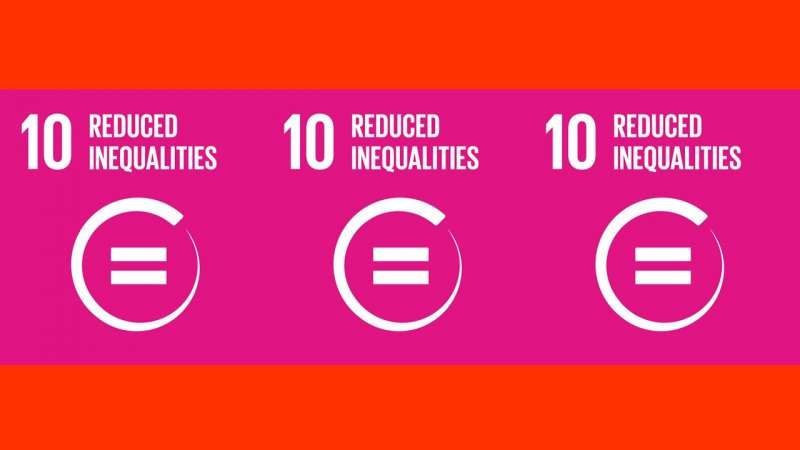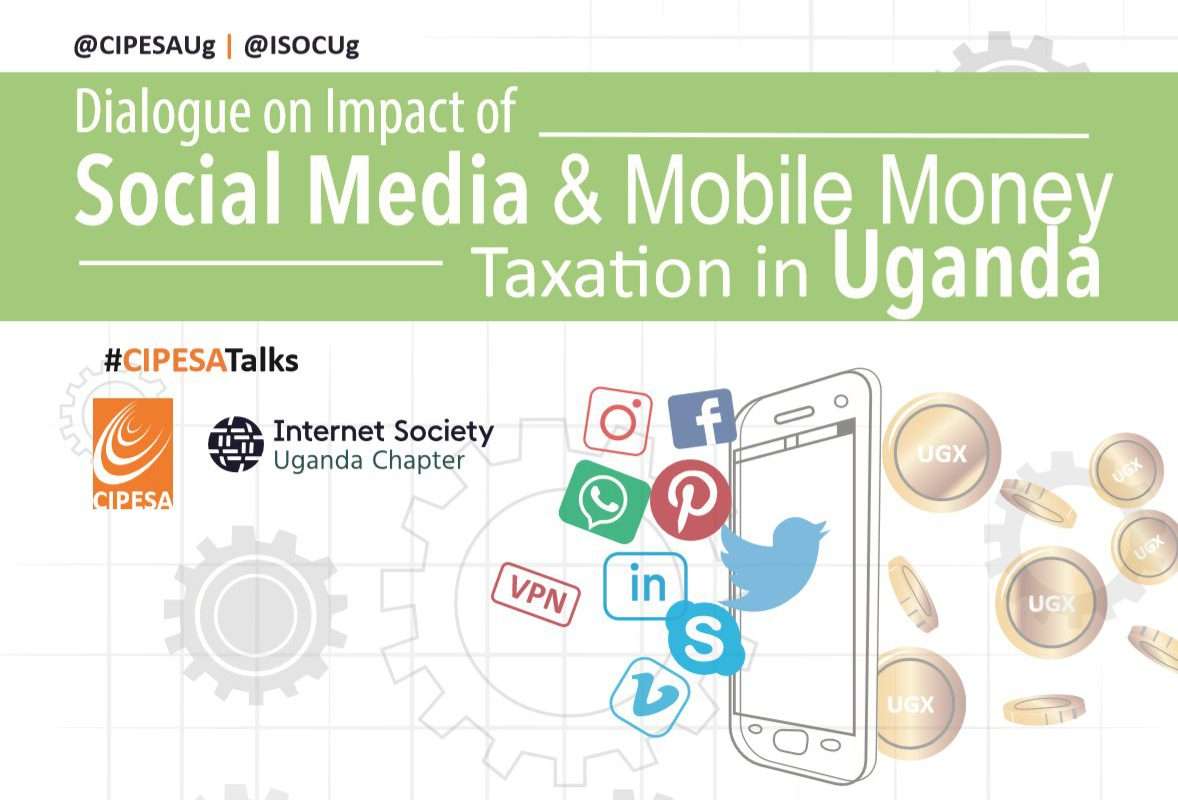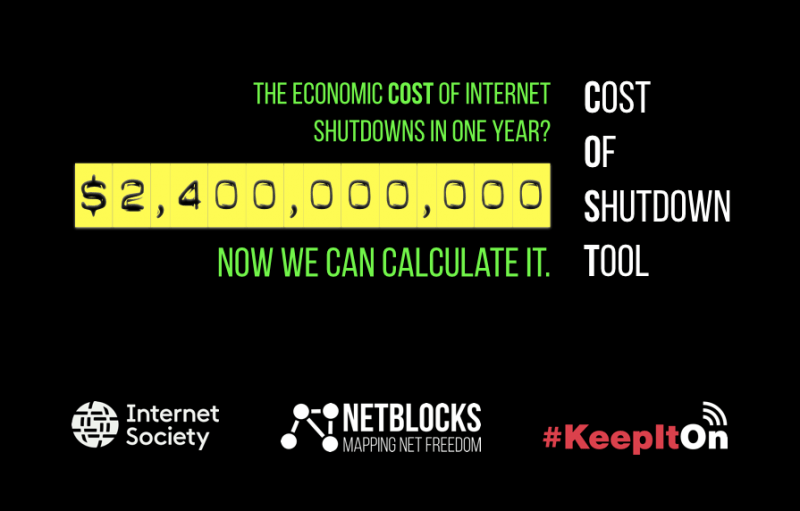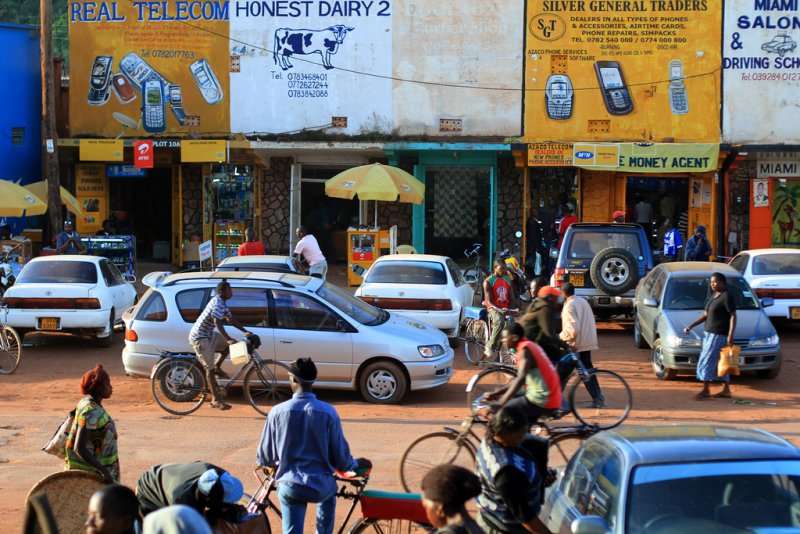By Loyce Kyogabirwe |
Despite the existence of legal and regulatory frameworks that promote the right to information, access to public information remains a big challenge in Uganda. The potential of ICT to promote citizens’ access to information is widely acknowledged and in 2014, the government and civil society partners launched the Ask Your Government (AYG) web platform that allows citizens to make online information requests to government Ministries, Departments and Agencies (MDAs).
However, four years on, it is evident that most citizens might not be aware of their right to information let alone the procedures for accessing information and data that is held by public bodies. Meanwhile, public officials continue to ignore citizens’ information requests despite efforts to equip both the duty bearers and rights holders, including information officers, journalists as well as women’s rights organisations, with knowledge and skills on rights and responsibilities.
User statistics from the AYG portal show an increase in the number of requests as well as number of public agencies registered on the portal. Between 2014 and 2016, only 243 requests were submitted to 76 agencies. But by June 2018, the number of information requests submitted had reached 2,450, to 106 MDAs (20 Ministries, 60 Departments and Agencies and 26 to Local Government Officials).

The highest number of information requests have been submitted to the Uganda Revenue Authority (URA) – 350 between June 2014 and June 2018, followed by the Ministry of Defence with 152.
However, the nature of requests lodged still indicates a misinterpretation of what falls under a public information request as most of the submissions are related to internships and Tax Identification Numbers (TIN). Perhaps this is an indication of the priority information needs of many of the portal’s users.
Also of concern is the low response rate to information requests. Of the 2,450 requests submitted between June 2014 and June 2018, only 121 have been indicated as successful and and 102 as partially successful, representing an average response rate of 9%. Less than 1% of requests (20) were rejected while those still awaiting responses are 2,074 or 85%. The 85% can be regarded as refusals under section 18 of the Access to Information Act (ATIA), 2005 which states: “an information officer fails to give the decision on a request for access to the person concerned within the period contemplated under section 16, the information officer is, for the purposes of this Act, regarded as having refused the request.” The response period is 21 days.
In some cases where public information was requested, users were advised to visit the respective MDAs in order to access such information. For example Davidson Ndyabahika, a journalist working with Uganda Radio Network, requested for statistics of enrolment and performance of both private and public primary and secondary schools in Ntungamo District from 2010 to 2016 from the Ministry of Education and Sports. He was advised to physically visit the Ministry offices where he would be cleared first before accessing such information. Such a response indicates challenges with digitised information storage and retrieval among public agencies although section 10 of the Act mandates information officers to ensure that records of a public body are accessible.
Equally, there are cases where limitations of the portal have emerged and information has been withheld because it can only be provided after payment of the statutory search fees. The ATIA specifies a non-refundable access fee of Uganda Shillings (UGX) 20,000 (USD 5) which remains a high cost for the majority of the population.
The limited levels of government responsiveness to information requests and uptake of AYG by both citizens and public officials impact upon initiatives working to promote access to public information for social accountability and civic engagement. This calls for more capacity enhancement, sensitisation and awareness raising among public officials of their duties and responsibilities as laid down in the Access to Information Act. Likewise, MDAs ought to utilise the different ICT platforms and tools to proactively release public information as prescribed in the Act and make efforts to ensure that citizens are aware of such information and where to find it.
Under Section 7 of the Act, public bodies are mandated to compile manuals containing descriptions, addresses, the nature of work, services and how to access information within six months after the commencement of the Act. However, 13 years since the law was passed, only the Ministry of Lands and Urban Development has adhered to this requirement. Indeed the ministry was in 2015 awarded the most responsive public entity as part of commemoration of International Day for Universal Access to Information (IDUAI).
Likewise, section 43 of the Act requires every minister to submit an annual report to Parliament on requests for records or access to information made to a public body under his or her ministry indicating acceptance or rejection, and reasons for rejection. However, there has never been any report from ministers since 2005 when the Law was passed, and Parliament has never demanded for such reports.
Meanwhile there should be efforts to continuously empower citizens to fully exercise their right of access to information as stated in Article 41 of the Constitution and Section 5 of the ATIA. Such efforts include capacity building of different demographic groups such as women, youth, persons with disabilities (PWDs), journalists, and teachers to demand for public information relating to service delivery and accountability while utilising different ICT platforms and tools including the AYG portal. Public officials should also be empowered to utilise these tools to proactively share public information with citizens.
The AYG is an initiative of the Ministry ICT and National Guidance in partnership with the Africa Freedom of Information Centre (AFIC) and the Collaboration on International ICT Policy for East and Southern Africa (CIPESA).
Promoting Accessible ICT in Uganda
By Ashnah Kalemera |
The challenges faced by persons with disabilities (PWDs) in accessing information online and financial services since Uganda introduced taxes on social media access and mobile money transactions came to light last August. These taxes added to the catalogue of barriers to promoting access to Information and Communications Technology (ICT) for disabled persons in the country.
Indeed, national statistics for internet and telephone penetration (49% and 69% respectively), are not disaggregated by disability which in itself could be telling of the state of digital accessibility for PWDs in Uganda. General barriers to ICT use in Uganda include high costs of accessing and owning ICT; a shortage of usage skills which is linked to low adult literacy rates; poor electricity and telephone network coverage in rural and underserved areas.
Furthermore, uptake of ICT for PWDs is hampered by the high cost of assistive technology; low levels of ICT and disabilities literacy among policy makers, academia, civil society and other stakeholders; non-implementation of policies related to ICT access for PWDs; and unavailability of relevant software in local languages. See draft ICT for Disability Policy (2017).
As a party to the United Nations Convention on the Rights of the Persons with Disabilities (CRPD), the government of Uganda has been working to ensure equal opportunities and inclusion of persons with disabilities.
Article 9 of the CRPD calls on state parties to take appropriate measures to ensure accessibility of ICT to persons with disability. The CRPD also calls on member states to ensure that private sector service providers, including through the internet, provide information and services in accessible and usable formats for persons with disabilities.
Following the drafting of the ICT Policy for Disability last year, the Ministry of ICT and National Guidance has also drafted Accessible Publishing Guidelines and an Accessible ICT Procurement Policy. The publishing guidelines are aimed at ensuring that government communications, documents and publications (print or electronic) are universally accessible at the same time and no extra cost to PWDs. They build on the Guidelines for Development and Management of Government Websites which set out requirements for accessibility for audio, visual and speech impaired users.
For its part, the proposed procurement policy requires all government Ministries, Departments and Agencies (MDAs) to ensure that PWDs have access to all government electronic facilities, resources and services by incorporating accessibility requirements in procurement of goods and services.
Speaking at an awareness-raising workshop on the proposed policies on October 11, 2018, Silas Ngabirano, the Assistant Commissioner for Information Management Services at the ICT ministry, stated that the policies had undergone participatory consultations, with input from MDAs, local government authorities, the private sector, civil society organisations, development partners and the media.
The proposed implementation plans for the policies include establishment of a national accessibility centre, set up of ICT and disability focal points at each MDA, monitoring of government ICT services for accessibility, and support to private sector initiatives working on accessible ICT products and services.
It remains unclear when the various policies are expected to be finalised. However, according to ICT Ministry, implementation of certain aspects of the proposed policies was already underway. For instance, all education institutions are currently required to have computer terminals accessible for students with disabilities. However, as highlighted by a lecturer participant from Makerere University, infrastructure at the university and many other institutions remained under-equipped for PWDs while course assessment procedures hardly took into account the needs of students with disabilities.
Meanwhile, the Uganda Communications Commission is working to enforce compliance with ICT licensing requirements and regulations with regards to sign language interpretation and subtitles by television broadcasters. In a notice issued on October 19, 2018, UCC states that effective January 1, 2019, it “shall not renew” licenses of any television operators not compliant with the provisions of the Persons with Disabilities Act, 2006. Section 21(2)(a) of the Act states that “Any person who owns a television station shall provide sign language inset or subtitles in at least one major news cast program each day and in all special programs of national significance.”
Further, in partnership with United Nations Educational, Scientific and Cultural Organisation (UNESCO), the Uganda government is working to develop an information portal, which once finalised, will track implementation of policies on assistive technologies and provide information and experiences of ongoing accessibility initiatives in the country. Previously, UNESCO has helped to conduct a training for Uganda government officials on web accessibility for PWDs.
At the sensitisation workshop, stakeholders acknowledged that implementation of the proposed policies and existing legal and regulatory frameworks is hindered by inadequate data on PWDs for effective planning. Resource requirements for provision of assistive devices, large print or magnifiers, materials in braille and video captioning, were also cited as a challenge.
Dialogue on Social Media and Mobile Money Taxation in Uganda
CIPESATalks |
The evolution of the digital economy in Uganda over the last 20 years has broken barriers associated to geography and time and thus enabled information flows critical for business processes, innovation, entrepreneurship, civic participation, learning and research, and government service delivery.
Following concerns on the growing public debt bill, and a constrained tax base, the Uganda government introduced a raft of taxes in the Excise Duty Act (Amended), notably on Over the Top (OTT) services and mobile money transactions. Beginning July 1, 2018, users must pay a tax of UGX 200 (USD 0.05) per day to access various social media platforms including Facebook, WhatsApp, Twitter and LinkedIn. For mobile money, a 1% levy applies to deposits and withdrawals, on top of a revised excise duty of 15% up from 10% on transfers. These taxes pose a huge threat on internet access and affordability, and financial inclusion for low income and marginalized groups such as women, youth and rural communities. In fact, the Alliance for Affordable Internet (A4AI) estimatesthat the social media tax will cost Uganda’s poorest up to 40% of their average monthly income to buy a basket of 1GB of data.
Accordingly, CIPESA in partnership with the Internet Society Uganda Chapter seeks to convene stakeholders to deliberate on the economic, social and human rights impact arising from the new taxes. The dialogue will deliberate on how policy making processes can advance inclusive and equitable access to the internet, promote innovation and consumer rights protection. The dialogue builds on previous ones convened by CIPESA, for multiple stakeholders in the ICT eco-system.
See full agenda here.
NetBlocks and CIPESA to launch COST tool at the Forum on Internet Freedom in Africa
Announcement |
LONDON — Today, the Collaboration on International ICT Policy in East and Southern Africa (CIPESA) and digital rights group NetBlocks are announcing plans for the Africa launch of the Cost of Shutdown Tool – COST, at the Forum on Internet Freedom in Africa (FIFAfrica) 2018, set to take place 26 – 28 September, 2018, in Accra, Ghana.
The tool, developed by NetBlocks in collaboration with the Internet Society and first unveiled at RightsCon Toronto in May 2018, is aimed at automating the task of economic estimation of the impact of internet shutdowns, mobile data blackouts and social media restrictions. It draws inspiration from the new model for calculating the economic impact of shutdowns in sub-Saharan Africa launched by CIPESA last September as well as earlier research by the Brookings Institution.

Lаunching the COST tool at FIFAfrica is vital to support the advocacy and documentation efforts against shutdowns on the continent,” Ashnah Kalemera, Programme Manager, CIPESA, said.
“We hope that the economic loss proven by the tool will support litigation efforts as well strengthen pushbacks which will include the private sector”, she added.
CIPESA and NetBlocks will move forward as official partners. Both organisations are part of the #KeepItOn coalition against internet shutdowns, and support fast, reliable and open access to the Internet and knowledge online as a tenet of democracy, freedom of speech and economic prosperity.
“We are ecstatic to be partnering with CIPESA, one of the leading research and policy think-tanks in the region. Their expertise will ensure our work on Africa is accurate and up-to-date”, Hannah Machlin, Global Advocacy Manager, NetBlocks said.
Their collaboration will provide access to new network measurement techniques that can detect telecommunications blackouts and emerging threats to internet freedom in real-time, aiding the development of sustainable rights-based ICT policies.
CIPESA was established in 2004 under the Catalysing Access to Information and Communications Technology in Africa (CATIA) initiative, which was mainly funded by the UK’s Department for International Development (DfID). CIPESA works to enable policy makers in the region to understand ICT policy issues, and for various stakeholders to use ICT to improve governance and livelihoods. They currently approach their work through four different but interrelated thematic areas, namely promoting online freedom, ICT for democracy and civic participation, the right to information, and contributing to internet governance debate at national, regional and global level.
The NetBlocks Group is a civil society initiative building new techniques for network measurement that support freedom of expression and digital transparency, defending access to free and open technology and working on the security and privacy of core internet standards at groups including the Internet Engineering Task Force.
Uganda: New social media tax will push basic connectivity further out of reach for millions
By Alliance For Affordable Internet |
Uganda’s government has passed a new tax that will require citizens to pay UGX 200 (US$0.05) per day in order to use messaging and voice over-the-top services (OTTs), including Facebook, WhatsApp, Twitter, and Viber. The tax, slated to take effect on 1 July, will push the cost of basic internet access further out of reach for millions of low-income Ugandans. The government must take urgent action to reverse this measure.
The Excise Duty (Amendment) Bill 2018, passed last week by the Ugandan Parliament, calls for telecommunications service operators providing data used to access OTTs to pay an excise duty on this access. According to Reuters, the country’s mobile network operators are likely to pass these costs on to consumers, levying a daily tax on each SIM card used to access the relevant platforms and services. The impact on consumers in Uganda — and particularly on low-income users — will be significant, and is likely to force many of these users to curb their internet usage, or to forego access entirely.
Only five other countries in Africa (where data was available) have more expensive mobile internet plans than Uganda. At the end of 2016, a 1GB mobile broadband plan in Uganda cost more than 15% of average monthly income. This high cost is keeping Ugandans offline — according to the GSMA, individual mobile internet subscriber rates in Uganda stand at just 18% of the population.
The true cost to connect is even higher for those earning less than the average national income (i.e., less than US$630/year). For the lowest income group in Uganda (see graph below), purchasing the same 1GB plan costs them 30% of their average monthly income. With the excise duty in place, this cost to connect for Uganda’s poorest will jump by 10%, resulting in just 1GB of data costing them nearly 40% of their average monthly income. The richest Ugandans will also experience an increase of 1% in their cost to connect, and by and large, this new excise duty disproportionately and negatively impacts low-income Ugandans and their ability to affordably access the internet.

he Ugandan government has argued that such a tax is necessary both to reduce gossip (“lugambo”) on these platforms, and to raise funds needed to address the impacts of comments made on social media that are critical of the government. However, it has not provided any explanation as to how such a tax might change what people say on the platforms, nor how the funds collected would be used to address these impacts.
The government has also argued that this tax will help promote local content development by placing a tax on “imported content.” As consumers increasingly shift toward data-based services, mobile operators will have new opportunities to develop and offer their own OTT services on their networks. However, the current language in the bill makes the duty applicable to all voice and messaging OTTs, including those that could potentially be developed by mobile operators or Ugandan firms. This is precisely why regulators in other countries have opted not to intervene on OTTs — so that local companies can innovate and create jobs and value in the telecoms market. The government of Nigeria, for example, previously considered a tax on internet use, which was eventually scrapped as a result of studies showing it would make access unaffordable for millions of people.
For other local firms that rely on voice and messaging apps for sales and service, for example when they use WhatsApp to communicate with customers, this duty will hurt their businesses. Finally, from a consumer view, these services offer value for money to communicate and share with others beyond what existing voice and messaging services can provide.
Stifling internet uptake and use is also likely to result in failure to achieve the goals laid out in the Digital Uganda Vision.The ICT sector contributed 3.4% to Uganda’s GDP in 2015, and increasing internet access has the potential to spur significant socio-economic growth — a recent study showed that a 10% increase in mobile broadband penetration can increase economic growth by nearly 3%.
We urge the government of Uganda to:
- Repeal the excise duty amendment before it goes into effect, and
- Adopt an evidence-based approach to policy making for the sector, with a specific focus on better broadband planning, increased public access solutions, innovative spectrum policy, and more efficient use of universal service and access funds.
By focusing instead on these areas, the government can have a far more positive impact on increasing internet access, and promoting local content development and innovation.
Featured image: Bustling street scene in Kabale, Uganda (Photo credit: Adam Cohn, CC BY-NC-ND 2.0)





